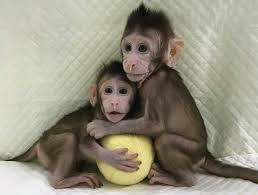
Breaking News
 China's Nightmarish New Bio Weapon Targets Race and Ethnicity
China's Nightmarish New Bio Weapon Targets Race and Ethnicity
 The Epstein Files Just EXPOSED the AI Mind Control Agenda (2026 Warning)
The Epstein Files Just EXPOSED the AI Mind Control Agenda (2026 Warning)
 Maxwell offers testimony if granted Trump clemency
Maxwell offers testimony if granted Trump clemency
 How RFK Jr's Guidelines Could Change Farming - Joel Salatin
How RFK Jr's Guidelines Could Change Farming - Joel Salatin
Top Tech News
 SpaceX Authorized to Increase High Speed Internet Download Speeds 5X Through 2026
SpaceX Authorized to Increase High Speed Internet Download Speeds 5X Through 2026
 Space AI is the Key to the Technological Singularity
Space AI is the Key to the Technological Singularity
 Velocitor X-1 eVTOL could be beating the traffic in just a year
Velocitor X-1 eVTOL could be beating the traffic in just a year
 Starlink smasher? China claims world's best high-powered microwave weapon
Starlink smasher? China claims world's best high-powered microwave weapon
 Wood scraps turn 'useless' desert sand into concrete
Wood scraps turn 'useless' desert sand into concrete
 Let's Do a Detailed Review of Zorin -- Is This Good for Ex-Windows Users?
Let's Do a Detailed Review of Zorin -- Is This Good for Ex-Windows Users?
 The World's First Sodium-Ion Battery EV Is A Winter Range Monster
The World's First Sodium-Ion Battery EV Is A Winter Range Monster
 China's CATL 5C Battery Breakthrough will Make Most Combustion Engine Vehicles OBSOLETE
China's CATL 5C Battery Breakthrough will Make Most Combustion Engine Vehicles OBSOLETE
 Study Shows Vaporizing E-Waste Makes it Easy to Recover Precious Metals at 13-Times Lower Costs
Study Shows Vaporizing E-Waste Makes it Easy to Recover Precious Metals at 13-Times Lower Costs
In a scientific first, cloned monkeys are born. Will they accelerate biomedical research?

Scientists in China reported1 on Wednesday in Cell that they had cloned two healthy long-tailed macaque monkeys from the cells of another macaque, using the Dolly technique. The two clones, born 51 and 49 days ago, were created from a fetus's cells; so far, the scientists have not been able to make the tricky procedure work when they used cells from adult macaques. That would seem to postpone the dystopian day when cloning children and grown-ups becomes as mainstream as IVF. But because "the technical barrier [to cloning primates] is now broken," co-author Mu-ming Poo of the Institute of Neuroscience in Shanghai told reporters, the technique "could be applied to humans" — something he said his team has no intention of doing and sees no reason for.
Cloning pioneers said the monkey clones represented, as Dr. Robert Lanza put it, "an impressive breakthrough, which overcomes the last major hurdle in the field." Lanza co-led teams that cloned a gaur in 2000 and in 2014 used the Dolly technique to produce human embryos2 (but not pregnancies) from the cells of an adult.

 Smart dust technology...
Smart dust technology...

